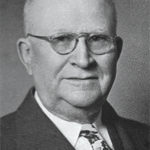Description
Illustrations of Bible Truth
by
H.A. Ironside
The Offer Of The Irish Landlord. 10
A Negro Preacher On Missions. 18
The Preacher And Fried Chicken. 18
Honor To Whom Honor Is Due. 23
Standing Where The Fire Has Been. 31
A Victim Of Wrong Information. 32
Cobbling For The Glory Of God. 34
Blind Leaders Of The Blind. 36
An Arrow Shot At A Venture. 46
Possessing Our Possessions. 47
A Butterfly Used To Answer Prayer 51
Not Only Necessary—But Enough. 70
The Conversion Of Thomas Scott, A Unitarian. 75
The Blood Counts For Something. 83
Salvation Altogether Of God. 85
The Fulness Of The Scriptures. 91
Possessing Our Possessions. 105
Preface
I think it was Charles H. Spurgeon who said, “The sermon is the house; the illustrations are the windows that let in the light.” Whether this remark was original with him or not, it is very true and deserves to be kept in mind and practically applied by those who would preach the Word in compelling power.
Some object to the use of anecdotes of any kind in preaching and teaching, and think all that is needed is the unfolding of the truth. But most minds are so constituted that they need illustrations to enable them readily to grasp the full import of the message. Our Lord Him self used this method continually and in this, as in other things, He has left “us an example, that ye should follow his steps.”
At the request of valued friends, I have grouped together here many stories and incidents which have served me well throughout a long ministry and which I hope may be used to advantage by others. Many are from my own personal experience and will not be found in the collections of other writers. Some, however, have been used in my books on various subjects. Others are now printed for the first time. I send them forth to the glory of Him who has been to me for over half a century, a wonderful Saviour and a faithful Friend, my ever adorable Lord Jesus Christ.
- A. Ironside
Chicago, Ill.
Doubtful Things
“He that doubteth is condemned if he eat” (Rom. 14:23, R.V.).
Sandy was a thrifty Scot who objected to needless laundry expense, so when he wore a dress shirt to a banquet, he put it away carefully for future use. On one occasion when dressing for such an event, he took a used shirt out of the drawer and examined it with care, hoping to be able to wear it that evening. Not being quite sure of its strict cleanliness, he took it to a window, where he was looking it over under a better light than the room afforded. His wife, Jean, noticed him shaking his head as though fearful that it would not pass careful scrutiny.
“Remember, Sandy,” she called to him, “if it’s doubtful, it’s dirty.”
That settled it. The shirt went into the discard and another—a fresh one—took its place. Jean’s words may well speak to every believer concerning things about which conscience raises any question whatsoever.
Discerning Love
“That your love may abound … in all discernment” (Phil. 1:9, literal translation).
Lack of discernment often accounts for the failure of those in the pew to realize the full import of unsound teaching from the pulpit.
A brilliant modernistic preacher, who had pleased his audience with flowery oratory and beautiful perorations, as he discoursed glibly of the importance of breadth of view and the danger of bigoted opinions, was bidding farewell to his congregation as he was about to leave them for a new parish. One of his young men approached him and said, “Pastor, I am so sorry we are losing you. Before you came I was one who did not care for God, man, or the devil, but through your delightful sermons, I have learned to love them all!” This is mere sentimentality—not discerning love.
Evil Communications
“Evil communications corrupt good manners” (I Cor. 15:33).
Roaming in the woods, some boys found a nest containing two linnet fledglings, which they managed to capture and take home. Securing some plain, wooden birdcages, they put one of the linnets in each and hung them on either side of a canary. They explained to their mother that they hoped the linnets, being so young, would learn to imitate the canary, instead of cheeping as linnets ordinarily do. The mother smilingly questioned the likelihood of the plan succeeding.
The next day the boys entered the room, and exclaimed, “Mother, come here, our canary is cheeping like a linnet!”
And so it was. The canary had to be separated from the wild birds of the wood and kept under cover for a time before he regained his song. Surely there is a lesson here for all Christians. Fellowship with the world does not lead the godless to take the way of the Lord, but generally results in the believer losing his joyous song and taking on the speech and manners of the world.
He Did His Part
‘The son of man is come to seek and to save that which was lost” (Luke 19:10).
That man is an utterly lost sinner who could never find his own way back to God, is a very unpalatable truth for the average natural man or woman. We all like to think there is something we can do to help save ourselves, whereas, according to God’s Word we are not only lost, but without ability to retrieve our condition. It is remarkable how apt the colored folks are in quick illustrations of spiritual realities, as the following instance will show.
A recent convert, a colored man, rose in a meeting to give his testimony to the saving grace of God. He told how the Lord had won his heart and given deliverance from the guilt and power of sin. He spoke of Christ and His work, but said nothing of any efforts of his own.
The leader of the meeting was of a legalistic turn of mind, and when the negro’s testimony was ended, he said, “Our brother has only told us of the Lord’s part in his salvation. When I was converted there was a whole lot I had to do myself before I could expect the Lord to do anything for me. Brother, didn’t you do your part first before God did His?” The other was on his feet again in an instant and replied: “Yes, sah, Ah clear done forgot. Ah didn’t tell you ‘bout my part, did I? Well, Ah did my part for over thirty years, runnin’ away from God as fast as evah my sins could carry me. That was my part. An’ God took aftah me till He run me down. That was His part.” It was well put and tells the story that every redeemed sinner understands.
Help Those Women
“And I intreat thee also, true yoke fellow, help those women …” (Phil. 4:3).
He was unschooled, and trying to give a word of exhortation. He fumbled through the opening verses of Philippians 4, but became confused over the names of the two women referred to in verse 2, and so he read, “I beseech Odious and I beseech Soontouchy that they be of the same mind in the Lord.” He then proceeded to attempt an application of the truth according to the names as he had misunderstood them.
How much trouble is made among Christians by women like Odious, who are sounpleasant to get on with, and Soontouchy, who get offended over every little trifle! The application was good, though the interpretation was faulty.
Passing Trials
“Our light affliction, which is but for a moment” (II Cor. 4:17).
He was a very illiterate negro, who could only spell his way through the Bible with great effort and often failed to grasp the full import of the passages he tried to read. Rising to his feet in a testimony meeting where the leader had called upon each one to give his favorite portion of Scripture, the aged, colored brother said, “I gets more help from dem bressed words ‘And it came to pass’ than anything else in the Bible.”
Asked what he meant, he explained, “When I’se so upset wid trouble and pestered wid trials, I goes to the Bible, and begins to read, and I never goes far before I come across dem words, ‘It came to pass’ and I says, ‘Bress de Lawd. It didn’t come to stay. It come to pass!’“ Surely we may all learn from his simple faith.
Lost In The Church
“If our gospel be hid, it is hid to them that are lost” (II Cor. 4:3).
In an English village a Sunday school entertainment was being held in a small church. The place was crowded and in darkness as a stereopticon exhibition was being given. A knock at the door summoned an usher, who made his way to the front and announced, “Little Mary Jones is lost. Her family and the town officers have been searching everywhere for her. If anyone has seen her or knows of her whereabouts, will he please go to the door and communicate with the friend who is inquiring.” No one moved and the lecturer went on with his address and pictures.
At the close, when the lights were turned on, a lady noticed Mary sitting on a front seat. Going over to her, she said,
“Why, Mary, didn’t you hear them inquiring for you? Why did you not let them know you were here?”
Surprised, the child asked, “Did they mean me? They said Mary Jones was lost. I am not lost. I knew where I was all the time; I thought it was some other Mary Jones.”
She was lost in the church and did not know it. How many others are like her. They have a name that they live, but are dead. Though members of some local church, they have never seen their need of Christ, nor have they believed the message of the gospel




Reviews
There are no reviews yet.